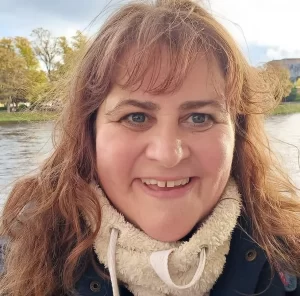
If you follow my Facebook page you might be aware that each Friday I put up a word of the week to encourage conversation. This week the word is BALANCE and it has inspired me to do a blog post on this. Do you ever feel overloaded? Overwhelmed? That you are spinning to many plates or juggling too many balls in life? Are you struggling with relationships, work, home life, or financial issues? Perhaps all of them? Maybe you are feeling stressed out or anxious as a result of everything that is going on your life right now. The photo above is our family dog Jack. Jack is an eleven and a half year old Golden Retriever who is brilliant at being mindful and getting his needs met. I often think that dogs could teach us a thing or two about finding a balance in life.
Whilst it be hard to know how to find a balance and reduce all the stuff we are dealing with at one particular stage of our lives, the reality is that our physical and emotional wellbeing can become impacted if we don’t strike a balance. I really believe that once we find calmness within ourselves we feel more equipped and able to deal with chaos and strike more of a balance in life.
So just how to go about striking a balance and taking care of ourselves. I will admit that even after over 20 years as a counsellor this is still something I find challenging myself, however, I’ve got MUCH better at it. I have over the years had M.E (Chronic Fatigue) twice and this has taught me one valuable lesson to pace myself. It’s been key in helping me finding more of a balance in life and is something I often talk about with clients.
We live in such a busy, fast paced world that it can be hard to keep up with the demands and expectations of those around us, alongside those we place on ourselves. However, it is important to remind ourselves of is that we all travelling our life journey at different paces. For instances; if you were a once a week Sunday morning jogger would you choose to train with a world class athlete, I would imagine probably not! I should at this point that the only time I run is to catch a bus or a train!
If we continue to push ourselves to extreme limits or overloaded ourselves this can lead to burnout if we do not take good care of our physical and emotional wellbeing. Having had health issues in the past myself, I can’t emphasise enough how important taking care of our health both physical and emotional is.
If you are feeling overloaded, overwhelmed, or stressed right now. It might be all very well me talking about finding a balance but just how do you that??
Firstly I would invite you to take 5 minutes. Yes, 5 minutes for you!
To begin I would encourage to focus on your breathing. Take some deep breaths in and out. When you exhale release all the stuff you are holding on to right now.
Once you have done so I would invite you to write down everything that you are feeling overloaded with right now. Then give each a rating on a scale of 1-10 with 10 being the most overwhelming situation or something that doesn’t feel imbalanced. When you have finished this you might like to consider if there is anything on that list you can offload to someone else? If not is there anything you can ask for help with? Are you able to postpone or cancel one of the things you have on that list?
Breaking things down can be key to finding more balance in life. Sometimes life situations can creep up on us overtime without us realising, that we are perhaps struggling to juggle with the demands of life and strike a balance. What I want to say at this point is that if you are feeling this way it is NOT because you have failed. Life can be tough at times. Whilst we can manage our own stuff we are not responsible for others stuff. External factors can play a part in our life situations. Whilst we don’t have control over others we do have the ability to take power in our own lives.
I will share with you a few tips below which you might find help. Whilst it might be hard to know where to start with making changes and finding a balance in life, I encourage to keep in mind that everything starts with a first step or thought.
- Focus on your breathing
- Take 5 minutes for yourself
- Delegate tasks to others
- Ask for help
- Delay, postpone until later. Or cancel something.
- Set boundaries. It’s okay to say no to people
- Go for a walk or do some other physical exercise
- Change your environment
- Write things down
- If you are not sure how to create a balance, I invite you to consider the following question. ” What would a more balanced lifestyle look like to you?”
- Have an early night! Yes, it can really help. Sometimes things do look better in the morning.









